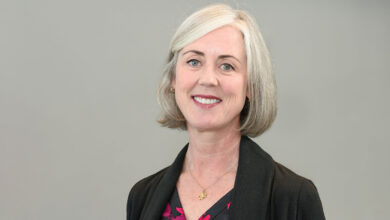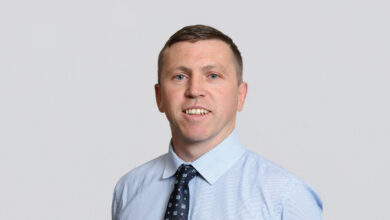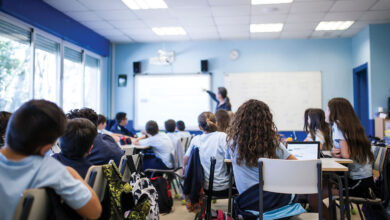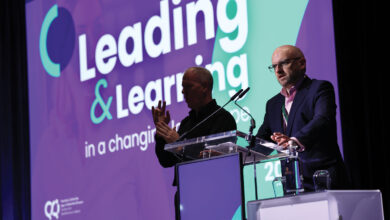Shadow education reinforces educational inequality in Ireland

The prevalence of ‘grinds’ reinforces educational inequality as it is used to avoid educational failure for lower-achieving young people from more advantaged families in the State, research by the Economic and Social Research Institute (ESRI) states.
Participation in shadow education, private supplementary tuition outside school (commonly referred to as ‘grinds’ in Ireland), has become increasingly common in many countries, with ongoing debates about its effects on academic performance.
The ESRI’s study, Participation in Shadow education and academic performance in Ireland and Germany, compares shadow education uptake and outcomes in the two system.
The analyses examine differences in grade point average between those taking shadow education and those not, taking account of other factors that might affect performance like social background.
In Germany, the findings show that shadow education can benefit low-achieving students by helping them maintain the grades needed to progress to the next year of school.
The study further states that in Ireland, grades matter for higher education entry, thus shadow education is used, particularly among low to medium achieving students, to enhance their chances of doing well, and securing the university place they want.
Educational inequality
Consensus amongst several studies is that grinds benefit students from a socially advantaged socioeconomic background in Ireland, with the lowest achieving students in Ireland least likely to take-up grinds.
In addition, students from a migrant background are also less likely to engage in private tuition in Ireland, while the same gap does not exist in Germany, the ESRI asserts.
While there are some non-profit examples of shadow education in Ireland, the for-profit market has an estimated value at €60 million at secondary level, according to Trinity News.
In a 2022 ESRI study, Shadow Education uptake among final year students in Irish secondary schools: Wellbeing in a high stakes’ context, Selina McCoy and Delma Byrne state that students at the lowest end of educational performance scale, are least likely to take out-of-school tuition.
They emphasise: Grinds are more common among pupils in fee-paying schools, and least likely among pupils in Deis schools serving disadvantaged communities,” as well as shadow education, having become “an accepted component of examination success for many students”.
Higher economic status
The study indicates that the uptake of participation in grinds substantially higher in Ireland, with 55 per cent of Irish students taking part in shadow education in their final year of school.
The study states that Irish students enrol in grinds to increase their chances of doing well and securing a university place, stating “grades matter for higher education entry”.
The study emphasises that shadow education in Ireland is “more socially selective”. The study found that students, whose parents have higher-status jobs and higher-level income, are more likely to access shadow education. While the study finds that there are some benefits of shadow education for lower-achieving students, there is “little, if any gain, for their middle and higher-achieving peers”, thus grinds in Ireland are being monopolised by those with higher incomes and not being accessed to the same extent by students from a lower income background.
The ESRI’s study concludes that taken together, “private tuition is frequently used to avoid education failure for lower-achieving young people from more advantaged families, thus reinforcing education inequality”.
Comparison between Ireland and Germany
While participation shadow education in Ireland is more socially selective, in Germany, only being in the top fifth of household incomes makes a difference, thus Germany is less socially differentiated and is instead, focused on keeping pace with academic expectation to ensure students avoid being held back a year.
Moreover, while 55 per cent of Irish students taking part in their final year of school, only 16 to per cent of German students access grinds. The study did find however, that female students are more likely to participate in shadow education compared with males in both countries.
While the grading systems in Ireland and Germany are different, with teacher-assessed results at the end of each school year mattering in Germany and externally assessed Leaving Certificates grades counting in Ireland, the use of shadow education is becoming increasingly common in both countries.
The two countries also differ in the prior achievement levels of participants, reflecting the nature of the system. The study states: “In Germany, students have been tracked by ability at an earlier stage but must reach a ‘sufficient’ grade each year to avoid having to repeat a year.”
As a result, lower-achieving students in Germany are more likely to take shadow education to avoid being kept back a year. The study says that for Ireland, “grades matter for higher education entry”, thus shadow education is employed.
In addition, another 2024 ESRI study, Inequality in participation in shadow education in mathematics in Europe: An intersectional perspective, finds a wider uptake of shadow education for mathematics across Europe varies between primary and secondary level, by country as well as across intersectional groups.
The update of shadow education for mathematics at primary school level across Europe stands at 13 per cent, while it stands at 38 per cent at secondary school level. According to the study, uptake is higher in central, eastern European and southern European countries and lower in the northern European countries, the available information did not explain why this pattern persists.
Furthermore, the study emphasises that disparities in shadow education participation is more pronounced at primary school level. The study found that overall uptake is greater among those whose parents have lower levels of education, suggesting it is being used by students who have greater difficulties with their schoolwork.
Analysis
Ireland’s uptake of shadow education has been deemed more socially selective compared to Germany, however, both countries demonstrate that grinds, like the rest of Europe is becoming more normalised. McCoy and Delma state that shadow education “poses particular challenges” for policymakers across the world but also state that grinds is “much less about pupils who are in real need of gaining support that they cannot find at school, and much more about maintaining the competitive advantages within school for the already successful and privileged”.





